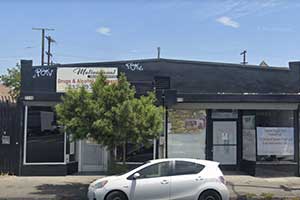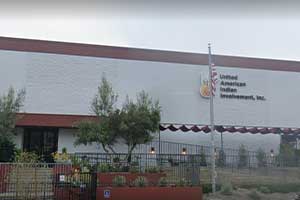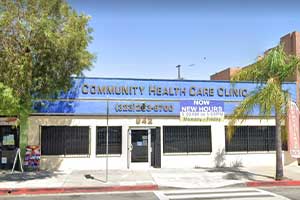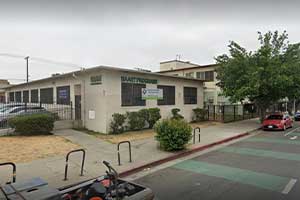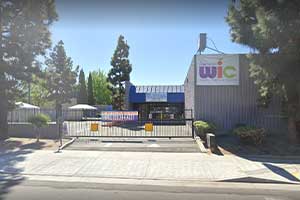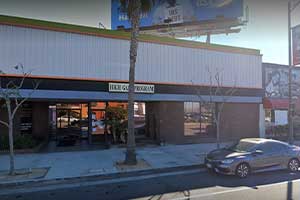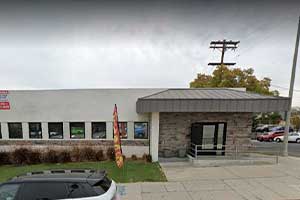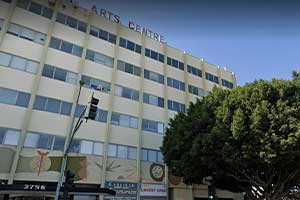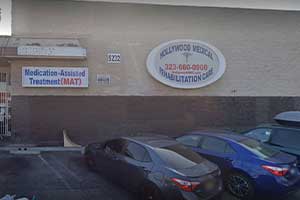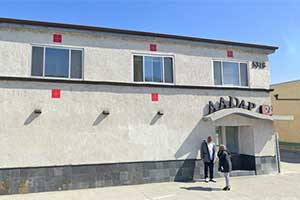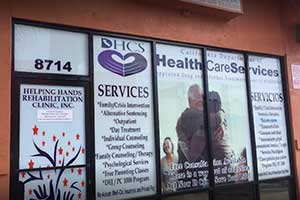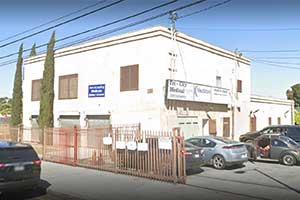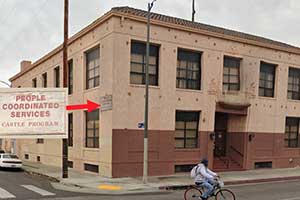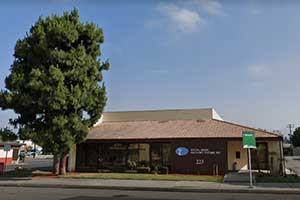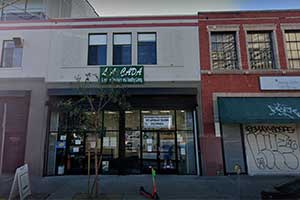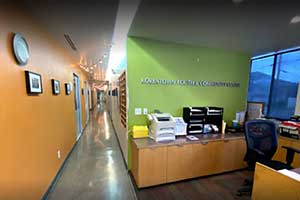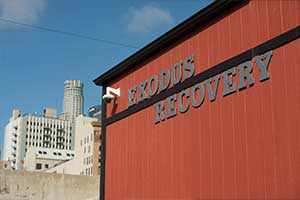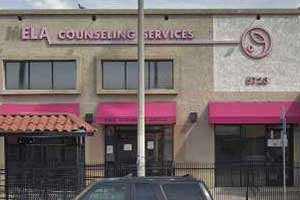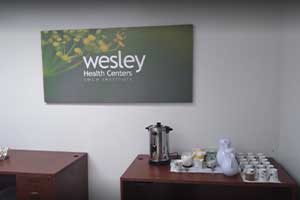Skip To Rehab Listing
The City Of Angels: Opioid Central
Known as "The City of Angels," Los Angeles, CA is famous for its movie stars, sordid Hollywood history, and nearly year-round sunny weather. But sadly it's also become world-renown for something else-rampant drug addiction.
We've all heard the stories-Janis Joplin, River Phoenix. Jimi Hendrix, Heath Ledger. Glamourous stars of stage and screen overdosing in hotel rooms. It's a death that's been immortalized in tv and film, but the truth is that for many Angelenos, it's an all-too-familiar reality. According to the National Survey on Drug Use and Health, the rate of misusing/abusing prescription opioids in the past year in LA County is 4.7%, (which is notably higher than the national average of 4.3%.) In the United States as a whole, drug overdose deaths have grown steadily since the year 2000, and the numbers have been skyrocketing since roughly 2013. The majority of these deaths stem from opioid addiction (beginning with prescription pain pills and often then graduating to street heroin.) Often these heroin users then subsequently move onto fentanyl—a far more potent and deadly synthetic.
Nationwide, the rate of drug-caused deaths per 100,000 people has increased by more than 75 percent, and just in Los Angeles County, drug overdose is now the fourth leading cause of early death (4th among men at 15,446 deaths per year, and seventh among women—5,495 per year.) In 2017, the state of California had the fourth-highest overdose rate in the nation at 4,868. In Los Angeles County between 2011 and 2016, there were an average of 464 accidental opioid- related deaths per year-a shocking number.
So when we see drug overdose deaths represented in sheer numbers, and we know that each of those was an otherwise promising life, with a family, and a future, it's not quite so glamorous. If you or someone you love is struggling with drug addiction, reach out to get help today.
Drug and Alcohol Treatment Settings and Approaches in Los Angeles
Alcohol and drug addiction affects people of all ages, genders, and walks of life. The substance abuse treatment centers and resources, such as short term treatment programs, long term rehabs, inpatient addiction treatment centers, detox facilities, outpatient substance abuse treatment services, are intended to offer high-quality care to anyone who has a problem with addiction, regardless of their personal circumstance.
Alcohol and drug rehab facilities in the Los Angeles area are not all the same. They offer a range of modalities, including brief intervention approach, rational emotive behavioral therapy, matrix model, trauma-related counseling, couple/family therapy, vocational rehabilitation services, that allow patients to face their alcohol and drug addiction in the way that is most effective for them.
Special Programs for Substance Abuse Treatment
Even with the widespread presence of substance abuse, each individual who struggles with drug and alcohol addiction issues has their own specific circumstances that require an individualized approach. That is why the rehabs in Los Angeles provide several special resources such as active duty military, social skills development, domestic violence, substance abuse education, housing services, clients with HIV/AIDS.
Accepted Rehab Payment Types
Patients and their families should not avoid treatment because of worries about expense. Rehabilitation programs offer various alternatives for payment, including the following: private pay, private insurance, sliding fee scale, payment assistance, other state funds, state education funds. Substance abuse treatment centers can guide clients and their loved ones toward the payment plans that will put rehab within their reach.
Those who struggle with substance abuse should not wait to take advantage of the many services accessible in Los Angeles, CA..
Commonly Asked Questions about Addiction and Treatment
What are some tips for remaining drug free?
Remaining drug-free, especially after overcoming addiction, is a challenging journey. However, with a strong commitment, support system, and coping mechanisms in place, it's definitely possible. Here are some tips:
- Professional Help: Ongoing professional help is crucial, even after you've stopped using drugs. This could involve individual counseling, group therapy, medication, or other forms of treatment recommended by healthcare professionals.
- Support Network: Build and maintain a strong support network. This could include sober friends, family, mentors, or support groups who understand your journey and provide emotional assistance.
- Healthy Lifestyle: Regular exercise, a balanced diet, and ample sleep are all important for maintaining your physical health, which in turn, can support your mental health and resilience.
- Mindfulness and Stress Management: Practices such as meditation, yoga, and breathing exercises can help manage stress and cravings. They can also promote self-awareness, helping you recognize and deal with triggers before they lead to relapse.
- Hobbies and Activities: Engaging in new activities or rekindling old hobbies can help fill time previously occupied by substance use. They can provide a sense of purpose and enjoyment, reducing the desire to use drugs.
- Set Goals: Setting both short-term and long-term goals can provide a sense of purpose and direction. Goals can be related to your career, education, personal development, or other areas of interest.
- Avoid Triggers: Identifying and avoiding situations, places, or people that trigger the desire to use drugs is essential. If avoidance isn't possible, develop coping strategies to deal with these triggers.
- Continuous Learning: Educate yourself about addiction and recovery. Understanding the process can empower you and give you insight into your own journey.
- Positive Self-Talk: Maintaining a positive attitude and practicing self-compassion can help you deal with moments of doubt or guilt.
- Practice Accountability: Stay accountable to yourself and others. This can involve regularly checking in with your support network, attending recovery meetings, or working with a sponsor or mentor.
How to deal with a brother or sister addicted to drugs?
"Dealing with a sibling addicted to drugs is challenging and often emotionally draining. Here are several strategies to consider when navigating this difficult situation:
Education: The first step is to educate yourself about addiction. Understanding that addiction is a chronic disease can help you comprehend the struggles your sibling is going through.
Communication: Open lines of communication with your sibling. Speak honestly about your concerns, but avoid judgmental language. Express your love and concern rather than blame and anger.
Support, Don't Enable: It's important to support your sibling without enabling their addiction. This means helping them in ways that promote recovery, such as providing emotional support or helping them access treatment, but not shielding them from the consequences of their actions.
Encourage Treatment: Advocate for your sibling to seek professional help. This could be a rehab facility, outpatient treatment, therapy, or 12-step programs. Offer to accompany them to appointments or meetings if they are comfortable with it.
Take Care of Yourself: Living with a sibling's addiction can be emotionally taxing. It's crucial to take care of your mental and emotional health too. Seek support from friends, family, or support groups. Professional help, such as therapy or counseling, can also be very beneficial.
Set Boundaries: It's necessary to set boundaries with your sibling to protect your own well-being. This might include rules about drug use in your home or not providing money that could be used to buy drugs.
Patience and Persistence: Recovery is a long process and relapses can occur. It's important to stay patient and persistent, and to maintain hope for your sibling's recovery.
Involve a Professional: If you're finding it hard to get through to your sibling, consider staging an intervention with the help of a professional counselor or intervention specialist.
Practice Compassion: It's essential to remember that your sibling is battling a disease. Stay compassionate and understanding, and remind them that they are loved and valued regardless of their struggle with addiction.
How can I get help for opioid addiction?
If you or someone you know is struggling with opioid addiction, seeking help is a crucial first step towards recovery. There are several resources and options available to assist you in overcoming opioid addiction:
- Consult a healthcare professional: Speak with a doctor, therapist, or counselor who is experienced in addiction treatment. They can assess your situation, provide guidance, and recommend appropriate treatment options based on your individual needs.
- Medication-Assisted Treatment (MAT): MAT combines medications like methadone, buprenorphine, and naltrexone with counseling and behavioral therapies to treat opioid addiction. These medications can help manage withdrawal symptoms, reduce cravings, and decrease the likelihood of relapse.
- Inpatient treatment programs: Inpatient or residential treatment programs provide intensive, structured care in a controlled environment. These programs typically offer medical detoxification, therapy, counseling, and support group meetings to address the physical and psychological aspects of addiction.
- Outpatient treatment programs: Outpatient programs provide therapy, counseling, and support while allowing individuals to continue living at home and attending work or school. These programs vary in intensity and duration, offering a flexible option for those who cannot commit to inpatient treatment.
- Support groups: Attending support group meetings, such as Narcotics Anonymous (NA) or SMART Recovery, can provide valuable peer support and a sense of community during the recovery process. These meetings allow individuals to share experiences, learn coping strategies, and receive encouragement from others who have faced similar challenges.
- Therapy and counseling: Individual, group, or family therapy can help address the underlying psychological and emotional issues contributing to opioid addiction. Cognitive-Behavioral Therapy (CBT), Dialectical Behavior Therapy (DBT), and Motivational Interviewing (MI) are among the evidence-based therapies that can be beneficial in the recovery process.
- Helplines and crisis lines: If you need immediate assistance or information about opioid addiction and treatment resources, consider calling a helpline, such as our own (877-882-9275), or the Substance Abuse and Mental Health Services Administration (SAMHSA) National Helpline at 1-800-662-HELP (4357) or your local crisis hotline.
- Online resources: Websites like the National Institute on Drug Abuse (NIDA), the American Society of Addiction Medicine (ASAM), and the Substance Abuse and Mental Health Services Administration (SAMHSA) provide a wealth of information about opioid addiction and treatment options. Online forums and communities can also provide peer support and shared experiences.










